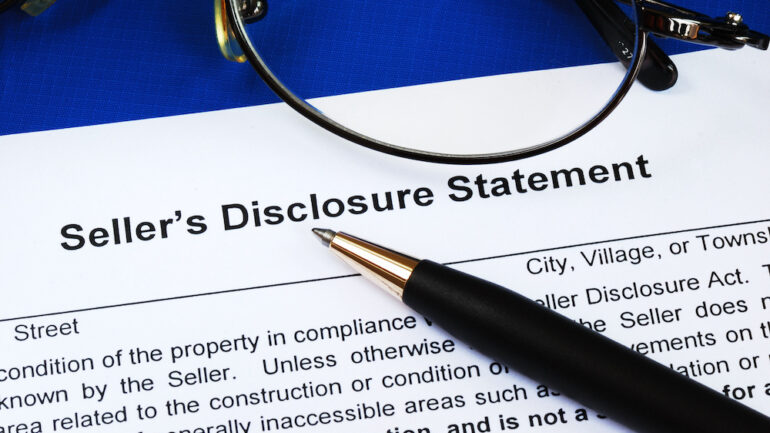You must disclose certain material facts about your home that you are aware of when selling it. Not informing the eventual buyer of these matters can lead to litigation and financial penalties if the undisclosed information leads to problems later. Here is a list of situations you must reveal.
Honesty is the best policy. So, disclose!
Most states require a seller to complete a disclosure of property condition form regarding any physical defects in or damages to the house that the seller knows about. In this form, you must report all of these known conditions:
- A history of wood-destroying insects such as termites and carpenter ants
- Any infestations of other pests, such as rodents, other insects or other invasive creatures, either currently or in the past
- Any past water penetration, damage or flooding
- The home’s presence in a flood zone
- The known presence of toxic materials such as asbestos or lead paint
- Any electrical problems
- Any mechanical problems, such as a heating or air-conditioning malfunction
- A history of mold and remediation
- History of foundation damage
- Any remodeling or other work that required a permit and inspection and didn’t have them
There are other situations you must report that are unrelated to the property’s condition. You must disclose the following:
- A drainage problem on or near the property
- An environmental hazard nearby, such as a chemical or petroleum plant
- A property boundary or easement violation
- An unresolved homeowners association violation and outstanding fine
- A zoning issue that could materially affect the property’s value
- A significant road planned near the house that could affect the quality of life and the property’s value
- A railroad track close by
- Whether the home is in the vicinity of an airport that exposes it to aircraft noise and overflight
- Whether there has been a death in the house, generally within the last three years. If the buyer or agent asks about previous deaths, the seller must disclose them in some states, no matter when they occurred.
- An unresolved contentious relationship with neighbors
- Any paranormal activity in the house. (For real!)
Not reporting any of these items could result in litigation and expense. It’s best to disclose the conditions when the house is on the market and negotiate any repairs or price concessions with the buyer.
Related – The Home Inspector is Coming and I’m Terrified


